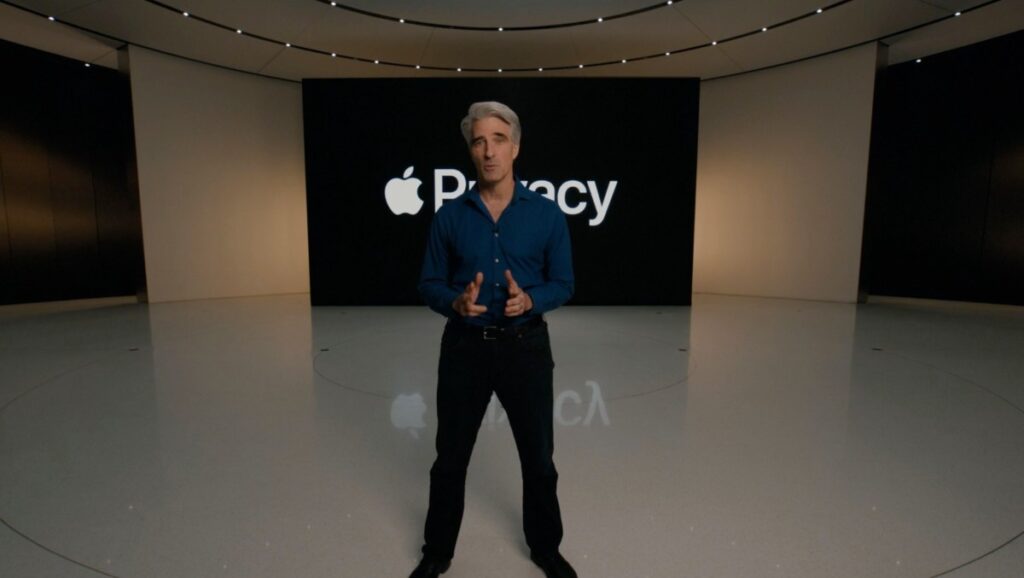Germany’s antitrust watchdog has been investigating Apple’s app privacy framework since 2022. On Thursday, releasing preliminary findings from this probe, the Bundeskartellamt (FCO) said it suspects the iPhone maker may not be treating third-party app developers as equally as the law requires.
The antitrust watchdog said it believes Apple’s behavior could amount to self-preferencing. Apple is banned from preferring its own services and products in Germany since April 2023, when it became subject to special abuse controls aimed at regulating big tech’s market power.
Under the wider Pan-EU Digital Markets Act (DMA), Apple is also prohibited from self-preferencing on iOS and a handful of other core platform services such as the App Store.
The app privacy issue being investigated now relates to Apple’s App Tracking Transparency framework (ATTF), which lets iOS users instruct third party apps not to track their usage for ad targeting.
At issue, for the FCO, is the difference in how Apple treats tracking permissions requested by third parties versus its own tracking of iOS users.
“[T]he strict requirements under the ATTF only apply to third-party app providers, not to Apple itself,” the FCO wrote in a press release. “In the Bundeskartellamt’s preliminary view, this may be prohibited under the special abuse control provisions for large digital companies (Section 19a(2) of the German Competition Act (GWB)) and under the general abuse control provisions of Article 102 TFEU [Treaty on the Functioning of the European Union].”
“The consent dialogues for Apple’s own apps and for third-party apps differ substantially,” it goes on. “The current design, in particular the wording, of the dialogue for Apple’s own apps makes it more likely that users will consent than that of the ATTF dialogue for third-party apps.”
The FCO says three aspects of the framework raise competition concerns.
Firstly, while Apple defines tracking “in a way that only covers data processing for advertising purposes across companies,” per the FCO, the same “strict” ATTF rules “do not cover Apple’s own practice of combining user data across its ecosystem — from its App Store, Apple ID and connected devices — and using them for advertising purposes.”
Secondly, it highlights how third-party apps may show up to four consecutive consent dialogues under the ATTF, while Apple apps show a maximum of two. Nor do the pop-ups around Apple’s own apps refer to “Apple’s own processing of user data across services (known as first-party tracking) as such,” in the FCO’s assessment.
Finally, the watchdog believes the design of tracking consent dialogues on iOS are treated unequally. The FCO says Apple’s dialogues are designed to encourage users to let it process their data, while the ones for third-party apps steer users towards refusing them.
Commenting in a statement, Andreas Mundt, the FCO’s president, said, “Apple operates a comprehensive digital ecosystem, which […] provides Apple with extensive access to user data relevant for advertising. Personalised advertising is also of great commercial significance for other companies wishing to offer free apps, some of which compete with Apple’s own services, in the App Store […] However, the ATTF makes it far more difficult for competing app publishers to access the user data relevant for advertising.”
Apple spokesman Tom Parker emailed a statement in which the company defended how it operates: “App Tracking Transparency gives users more control of their privacy through a required, clear, and easy-to-understand prompt about one thing: tracking. That prompt is consistent for all developers, including Apple, and we have received strong support for this feature from consumers, privacy advocates, and data protection authorities around the world,” Apple wrote.
“We firmly believe that users should control when their data is shared, and with whom, and will continue to constructively engage with the Federal Cartel Office to ensure users continue to have transparency and control over their data,” the company said.
The tech giant now has the opportunity to respond to the FCO’s findings.
Developers have often complained that Apple has double standards in relation to its own apps and services versus third parties. The company’s treatment of third parties is also under DMA scrutiny: the European Commission issued one preliminary breach finding last summer about how Apple operates the App Store.
It’s worth noting that Apple is appealing the FCO’s designation, seeking to overturn the watchdog’s ability to wield the special abuse powers. The outcome of that appeal is pending a court decision due on March 18, 2025.
Meanwhile, the powers apply on Apple, and the FCO’s action underlines how Apple and a handful of other designated tech giants are dealing with major competition interventions on multiple fronts in Europe.
